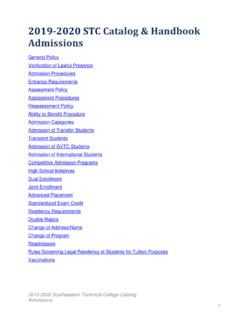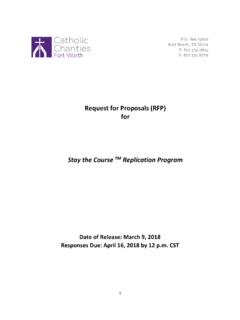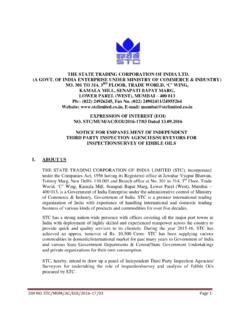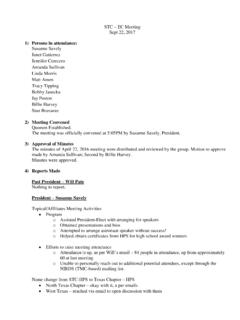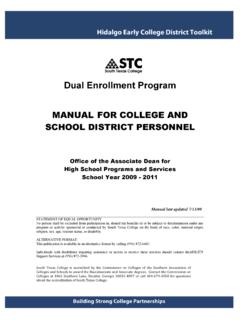Transcription of Integrated Communities Care Management Learning ...
1 132 Main Street * Montpelier, Vermont 05602 * Phone * Fax E-mail: * Web site: 1 Integrated Communities care Management Learning collaborative Final Evaluation Report Contract Reference: 28362 12/23/16 Contents Introduction .. 3 Background on Integrated care Management model .. 3 Implementing the ICM model in Vermont .. 3 VPQHC s Role in the ICCMLC .. 4 Purpose of this report .. 4 Community participation in the Vermont ICCMLC .. 5 Participating Communities .. 5 Organizations participating in each community .. 5 Brattleboro .. 5 Burlington .. 6 Central Vermont .. 7 Middlebury .. 8 Morrisville .. 10 Randolph .. 10 Rutland .. 11 Springfield .. 12 St. 12 St. Johnsbury .. 14 Windsor .. 15 ICCMLC Learning Sessions.
2 15 ICCMLC Webinars .. 16 Core Competency Trainings .. 17 132 Main Street * Montpelier, Vermont 05602 * Phone * Fax E-mail: * Web site: 2 ICCMLC Trainings Offered Locally by Participating Communities to Engage and Educate Community Partners .. 19 Rutland .. 19 Springfield .. 19 Brattleboro .. 20 Windsor .. 21 Middlebury .. 22 Feedback from participating ICCMLC Communities .. 22 Lead care Coordinator Self-Assessment Survey .. 26 Participants in the ICCMLC .. 27 Participant status .. 27 Participants with a Lead care Coordinator .. 29 Participants with a Shared care Plan .. 30 Participants who had a Shared care Conference .. 32 Feedback from participants in the 32 Case Studies of Participants.
3 34 Case Study 1 .. 34 Case Study 2 .. 35 Case Study 3 .. 36 Case Study 4 .. 37 Case Study 5 .. 38 Recommendations .. 39 State of Vermont Leadership .. 39 Participating Communities .. 41 Data Tool .. 41 Participant Survey .. 42 Conclusion .. 43 132 Main Street * Montpelier, Vermont 05602 * Phone * Fax E-mail: * Web site: 3 Introduction Background on Integrated care Management model Persons with complex health conditions and psycho-social needs may benefit from a wide variety of medical and social services from many different providers. It is essential that the care provided to these persons is not fragmented, with different agencies providing care in multiple locations without communicating adequately with each other.
4 Fragmentation of care can cause confusion and challenges following care plans; over-treatment and uncontrolled costs through unnecessary tests or duplication of services; or under-treatment and poor outcomes based on incomplete information or misidentification of the person s primary health determinants. In many Communities throughout the country an Integrated care Management (ICM) model has been implemented to make health care more person-directed, progressive, and non-episodic. The ICM model supports joint care planning with the person and his or her diverse providers across multiple organizations, with the goal of identifying and preventing the underlying reasons for poor health outcomes. These goals are detailed in a shared care plan, which is developed jointly with the participant and his/her diverse providers.
5 Integral to the ICM is the recognition that, in the majority of cases, a person s primary health determinants are related to social, environmental, and behavioral factors. In fact recent data suggest that only 20% of health outcomes are determined by clinical health care . Once a person s underlying reasons for poor health outcomes have been identified, a Lead care Coordinator (LCC) guides joint care planning and helps the person define and work towards personal, social, emotional, and health-related goals. In addition to clinical support, the LCC helps coordinate essential community services based on identified needs, which may include housing, food insecurity, substance abuse, mental health, violence, economic issues, and/or transportation, among others.
6 The ICM model should produce these positive effects: - care is less fragmented - Persons can access timely, appropriate, high-quality care - Persons can engage more fully in their own care - Communication between providers is better coordinated, improving continuity of care and lowering cost - Systems and tools efficiently share and apply information about a person s care among their providers Implementing the ICM model in Vermont In 2014, the Integrated Communities care Management Learning collaborative (ICCMLC) began helping Communities implement ICM in Vermont. The work was funded through a $45 million State Innovation 132 Main Street * Montpelier, Vermont 05602 * Phone * Fax E-mail: * Web site: 4 Models (SIM) Testing grant from the federal Center for Medicare and Medicaid Innovation and implemented through a collaborative effort of Vermont Program for Quality in Health care , the Green Mountain care Board, and the Department of Vermont Health Access including the Vermont Blueprint for Health.
7 Since the inception of the ICCMLC, the program has increased from 3 initial volunteer Communities to 11 Communities across the state. Significant connections have been established among a broad group of stakeholders including, but not limited to, hospitals, primary care practices, ACOs, community health teams, social services, mental health services, home health services, housing agencies, peer and advocacy organizations, and agencies on aging, with the goal of better coordinating care for identified persons with complex health conditions. VPQHC s Role in the ICCMLC Between March 2015 and December 2016, the Vermont Program for Quality in Health care , Inc. (VPQHC) supported the work of the ICCMLC through a contract with the State of Vermont, Department of Vermont Health Access.
8 A VPQHC staff member was one of two Quality Improvement (QI) facilitators who provided support to Integrated care teams in three pilot Communities (Burlington, Rutland and St. Johnsbury) as they began participation in the ICCMLC in January 2015. After June 15, 2015, the QI facilitators began to provide support to eight additional Round 2 pilot Communities (Brattleboro, Central Vermont, Middlebury, Morrisville, Randolph, Springfield, St. Albans and Windsor). The QI facilitators worked with the Integrated care teams in each community to build capacity for effective team-based care , to coordinate Learning opportunities related to integration of services on behalf of people who need the services, to implement promising interventions to enhance integration, and to measure the results of those interventions.
9 The QI facilitators focused on providing support in implementing quality improvement methods, team facilitation, group dynamics, understanding and using data, and project Management . The VPQHC facilitator worked closely with the ICCMLC Planning Team and community leaders on developing tools for statewide use, including shared care plans, educational materials, and reporting templates. The VPQHC facilitator also specialized in providing support to all pilot Communities for data collection, presentation and interpretation. A VPQHC staff member also supported the ongoing and final evaluation of the ICCMLC, which included advising on the design of data collection tools and surveys, data analysis, and presentation of final results of the evaluation.
10 Purpose of this report This report will describe the work VPQHC was a part of through 2015-2016, with an emphasis on key measures that can be used to evaluate the success of the ICCMLC and recommendations to support the ongoing success of this program. 132 Main Street * Montpelier, Vermont 05602 * Phone * Fax E-mail: * Web site: 5 Community participation in the Vermont ICCMLC Participating Communities Community name contact (s) contact email address Burlington Robyn Skiff Brattleboro Wendy Cornwell Jodi Dodge Central Vermont Heather Colangelo Middlebury Alexandra Jasinowski Morrisville Elise McKenna Randolph Lisa Delegato Patrick Clark Rutland Sarah Narkewicz Springfield Maureen Shattuck Tom Dougherty St.

